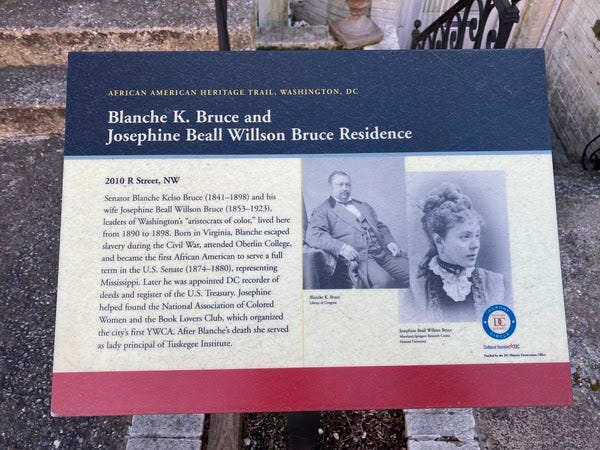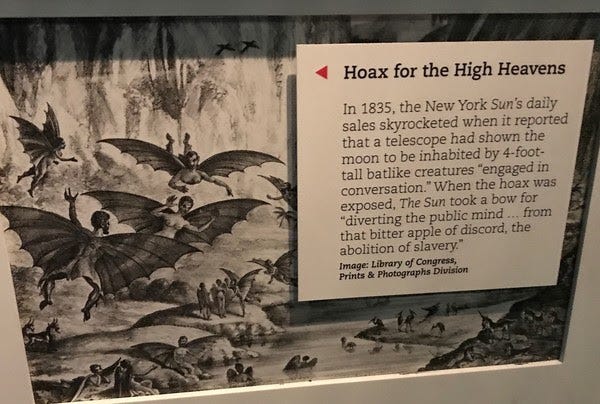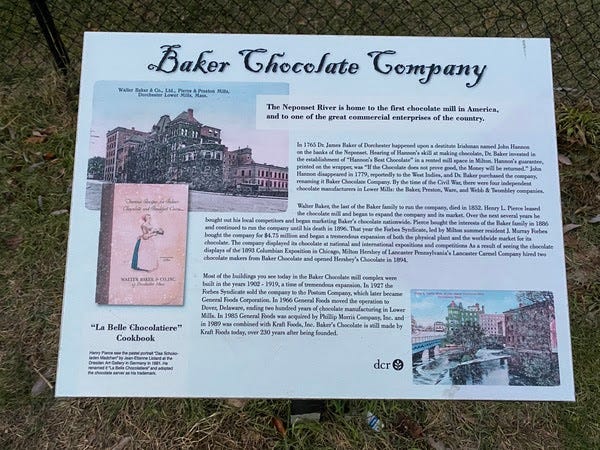Originally published on Revue - January 13, 2021
Since the last time I felt assured enough to spin my fleeting thoughts into a somewhat cogent narrative, it seems every aggrieved media personality who is any aggrieved media personality has started a newsletter. Probably a net positive for the future of paid journalism, but a real threat in today’s cutthroat attention economy to my niche as a middling writer who publishes too infrequently and has no particular area of expertise.
All that to say, cheers to the 72 of you all for two years and ten Flotsam, Jetsam, Liam issues of loyalty. I’ll keep working to raise my game and keep up with the times.
Reading the Signs
After the unequivocally shit year that was 2020, the find-the-silver-linings evangelicals have stormed their way into Most Tired Act title contention alongside the devil’s advocates and the stick-to-sports guys. There’s power in calling a spade a spade and resisting pressure to conflate how you’re coping with what you’d prefer. I wish you all more sunlight, fewer sleepless nights and less doomscrolling in 2021, yet acknowledge that even the most aggressive onslaught of random acts of kindness and words of affirmation can only assuage your existential dread and humor your yearning for a better world for so long.
Right now it’s difficult to escape the place you are in, but one device I’ve found useful for escaping the moment, if only for a moment, is to read the signs. As every passing week is anointed one for the history books we seem to neither read nor heed, it’s remarkable that anyone goes through the trouble of chronicling and commemorating people and places at all.
One of my favorite books ever is Julian Barnes’ 2011 Booker Prize winner The Sense of an Ending, a diabolically clever novel about the fickle reliability of one’s own memory. He writes that, “history is that certainty produced at the point where the imperfections of memory meet the inadequacies of documentation” (Julian Barnes, The Sense of an Ending, p. 18).
Having majored in a discipline – anthropology – where experts rely on a historical record of ceramic pot remnants to extrapolate the rise and fall of entire civilizations, I’m overall pleased with mankind’s gradual improvement in the “adequacy of documentation” to tell an incrementally more truthful version of events. At the same time, civic reckoning over Confederate monuments and tragic museum fires reveal how imperfect our record keeping is.
Read the signs you encounter on your wistful COVID strolls and take the opportunity to strengthen or rectify our collective memory. Please send your best discoveries my way for a possible feature in a future newsletter.
Healing is Messy
The compulsion to act, step up, mobilize when a crisis strikes is what made Paul Rusesabagina famous. Ten years after his heroics provided safe refuge to 1,200 Rwandans on both sides of the ethnic conflict during the 1994 genocide, Paul’s bravery was adapted for the big screen with the film Hotel Rwanda and he became a global humanitarian icon.
Today, his adopted daughter Carine Kanimba finds herself with a new crisis: her father Paul has been kidnapped, arrested and detained by the Rwandan government, facing charges of terrorism.
Carine and I have been friends since we met at the Northwestern University Community for Human Rights conference in 2015, and she was instrumental in helping my Co-Director Jonathan and I bring Paul to campus as the keynote speaker for the 2018 iteration of that same conference.
This past August, just days before Paul was kidnapped, I met up with Carine in DC for a drink. Fluent in several languages, with a masters in law & economics and expertise in development finance and impact investing, she was telling me about plotting her next move and potentially finding an opportunity in East Africa that would allow her to reconnect with her roots and be part of a buzzing local start up scene. She was fully ready to forge her own path and make a name for herself beyond her father’s legacy. Instead, she and her siblings have had to become his fiercest advocates.
When I invited Paul Rusesabagina to Northwestern, I naively assumed he came about as close to universally beloved as it gets. As I learned from a number of upset Rwandan students who attended his speech, his reputation back home is far from sterling. Bitterness between Paul Rusesabagina and popular long time Rwandan president Paul Kagame has been brewing for almost two decades. During that time, Kagame has brutally suppressed dissent and political opposition and enlisted spies to bolster his autocracy. Simultaneously, Rwanda has emerged from a genocide with a real sense of togetherness to become a burgeoning, business friendly tech hub dubbed the ’Singapore of Africa’.
Without a detailed understanding of Rwandan politics and military groups, my dose of hostile multilingual Twitter threads and articles from Western journalists has not equipped me to critically evaluate what culpability if any Paul Rusesabagina carries for aligning himself with rival parties from the comfort of his home in San Antonio, Texas and calling for change in Rwanda.
What I do know is this:
Kidnapping dissenters by hijacking and rerouting flights is not ok
Paul Rusesabagina has done a lot of good in this world and has a right to legitimate legal proceedings
Carine is an excellent human and wonderful friend whose life has been hell the past six months and yet she keeps fighting
If you’re inclined, you can donate to Paul’s legal fund here. And take a peek at Carine’s kick ass 2019 Ted Talk below.
Chocolate Stimulus
Soccer fans of a certain era share a unanimous soft spot for Ivory Coast. A golden generation of Ivorian footballing talent (Drogba, the Toure Brothers, Zokora, Eboué, Kalou, Gervinho, Tioté & more) came of age in the mid-2000s and not only led their nation to qualify for the World Cup for the first time in 2006 and subsequently twice more, but also played the starring role in halting an escalating civil war.
Besides gifted playmakers, Ivory Coast’s other major export is cocoa, producing just under 40% of the world’s supply, more than any other nation. My high octane sweet tooth simply could not sustain elite performance levels week in week out without industrious Ivorian labor and vegetation.
Sadly though, the global supply chain for cocoa is brutally bottlenecked by greedy shipping conglomerates and corrupted middlemen, meaning only a pittance trickles down to the Ivorians actually farming and harvesting cacao plants. My goal here is not to ruin another nice thing for you (if you do fancy a chocolate supply chain deep dive, this Netflix episode is worth your time), but rather to introduce you to a divine chocolate fix from a company that does the hard work to directly trace, responsibly source, and fairly compensate: Tony’s Chocolonely.
I’ve been hooked on Tony’s since Dom, my college roommate of scrupulous morals, gifted me a bar years ago, and amidst such strife, I’d like to pay it forward. Send me your address and I’ll mail you a bar (could get tricky if you’re not in the US, but we’ll figure it out).
Tennis Lessons
Not being able to safely participate in my favorite activity, pick up soccer, for ten months now has been a huge bummer, and solo juggling and wall ball sessions have only made me more keenly aware of what I’m missing. Nevertheless, to feed my insatiable appetite for recreational competition, I’ve taken regularly to a sport I’m far less proficient in, the official sport of quarantine, tennis.
One thing I really do appreciate about tennis is the objective performance feedback you get with every swing of the racket – in, out, long, short, wide left, wide right. On the court, one occupies a black and white world where minor adjustments can flip the outcome from bad (out) to good (in). Such a simplified reality though invites temptation; to cheat the process, to build bad habits, to let self-talk get in the way.
Everyone knows there’s no better way to improve at a sport than to read a book about it… so over the summer I turned to a brief, modest looking read published in 1974 for answers on how to bring my game to the next level.
The Inner Game of Tennis by W. Timothy Gallwey ended up being the best self-help book I have ever read, not just for tennis, but for life, and others seem to agree.
As you take things one day at a time, let me leave you with this from Guru Gallwey:
“When we plant a rose seed in the earth, we notice that it is small, but we do not criticize it as “rootless and stemless.” We treat it as a seed, giving it the water and nourishment required of a seed. When it first shoots up out of the earth, we don’t condemn it as immature and underdeveloped; nor do we criticize the buds for not being open when they appear. We stand in wonder at the process taking place and give the plant the care it needs at each stage of its development. The rose is a rose from the time it is a seed to the time it dies. Within it, at all times, it contains its whole potential. It seems to be constantly in the process of change; yet at each state, at each moment, it is perfectly all right as it is.” (W. Timothy Gallwey, The Inner Game of Tennis, p. 21)







